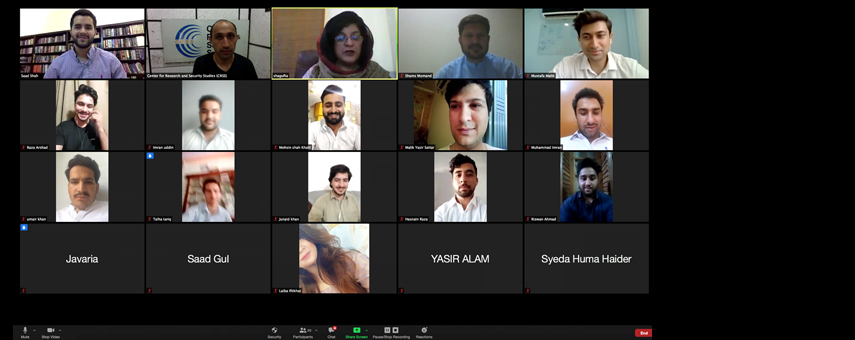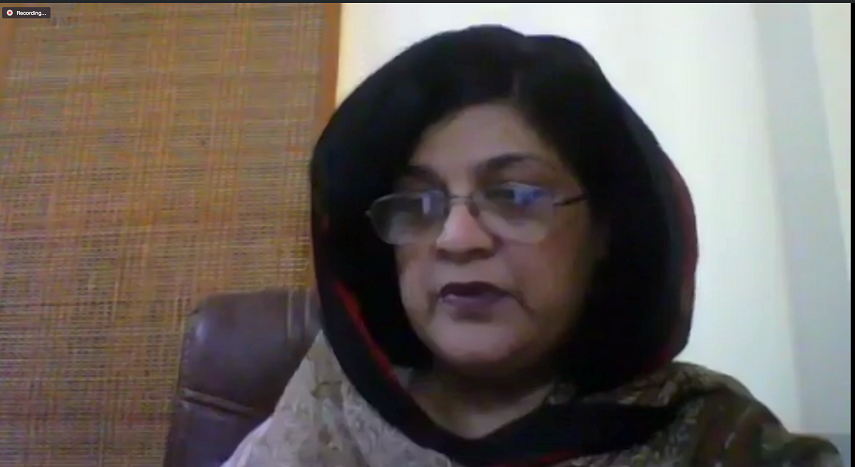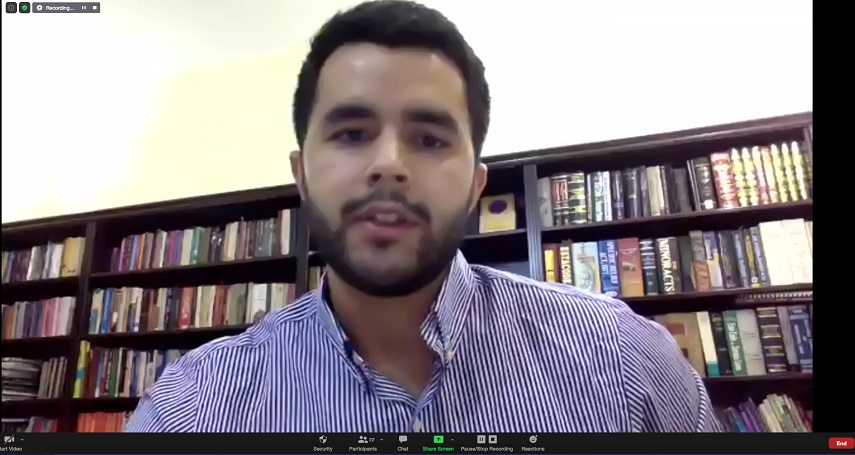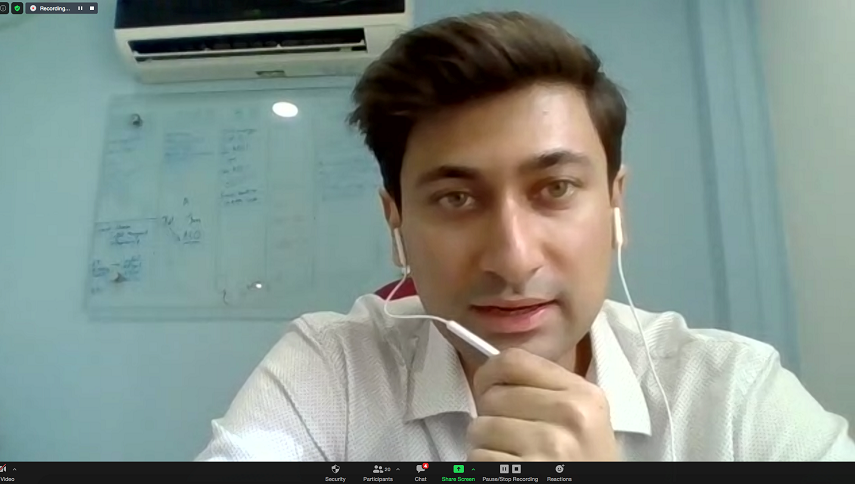Rule of law means that everyone is equally subject to and accountable before law, no matter how powerful. It acts as a safeguard against the government’s arbitrary powers, said Syed Saad Ali Shah, Advocate, Peshawar High Court, during the eighth round of Ulasi Taroon Online Workshops.
He noted that rule of law is a fundamentally essential prerequisite for social peace, harmony and stability. Giving up on and failure to observe rule of law only leads to chaos in the society and serves as a fault line that can make citizens vulnerable to the push and pull factors of radicalization. Therefore, it is extremely important to abide by the core constitutional values of peace and harmony. As seen in all the developed countries across the world, equal citizenry serves as an ingredient for their socio-political and economic progress and democratic development.
While it’s the responsibility of state to uphold rule of law, an equal onus is on the citizens, for due compliance and responsibility. Historically, the citizens have played a vital role in contributing to the accountability mechanisms and strengthening rule of law. Only by the citizens’ active role in the communal development, can rule of law be expected to strengthen. Such responsible citizenship requires collective vision and shared goals of development and prosperity that the members of the community achieve by banding together. This is how we can make the society a better and secure place to live by improving the environment. Respect for differences, acceptance of diversity, equality and adherence to rule of law are essentialities of social cohesion.
Responsible citizenship also demands challenging injustice and to report the violations of law including discriminations based on gender, religion or any other difference. Complying with the government’s regulations during the time of crises also means responsible citizenship.
It is very important to discuss in the universities setting, how active citizenship spells out with regard to rule of law. Students should resort to volunteerism to solve the issues of communal concern and as an avenue for participation in the democratic processes and civic engagement.
Rule of law is a very important principle for accountable, inclusive and transparent governance. It also demands inclusive policy making and publicly promulgated laws which are equally enforced and independently adjudicated. The citizens should be given opportunities for equal and active participation in the decision-making processes to foster social inclusion. They should also have accessible justice and be aware of and able to access the legal services on-offer.
Separation of powers among the institutions of state is another essentiality for rule of law where legislature, executive and judiciary only commit to legislation, execution, and adjudication respectively, and they respect their constitutional limits.
Rule of law and social cohesion are correlated given how the former warrants the social contract between the citizens and state. For responsible citizenship, it is important to understand that rule of law does not merely means entitlement to equal citizenry rights as enshrined in the constitution but also subject to certain responsibilities; written and implied.
The constitution of Pakistan empowers it citizens with fundamental human rights like right to be dealt in accordance with law, security of person, safeguards against arrest and detention, right to fair trial, dignity of man, freedom of association, right to information and whole range of other protections. However, your freedoms should not mean violation of someone else’s rights.
The event was participated by youth leaders from different public and private sector universities across Khyber Pakhtunkhwa, and held as part of the Center for Research and Security Studies’ (CRSS) efforts to continue to cultivate the young through online conduits for communication, in the absence of physical platforms of youth engagement and development.
About Ulasi Taroon:
Ulasi Taroon is a counter radicalization initiative of CRSS that aims to address the radicalization challenges and extremist ideologies and foster social cohesion in KP through a discourse anchored in the core constitutional values. The endeavors aim cultivate and sensitize the target groups in these core values highlight the criticality of abiding by these concepts – such as adherence to rule of law, primacy and sanctity of constitution, equal citizenry, respect for fundamental human rights, tolerance for diversity and different opinions, inclusive democracy and good governance – as a measure of fostering social cohesion and peaceful co-existence.




